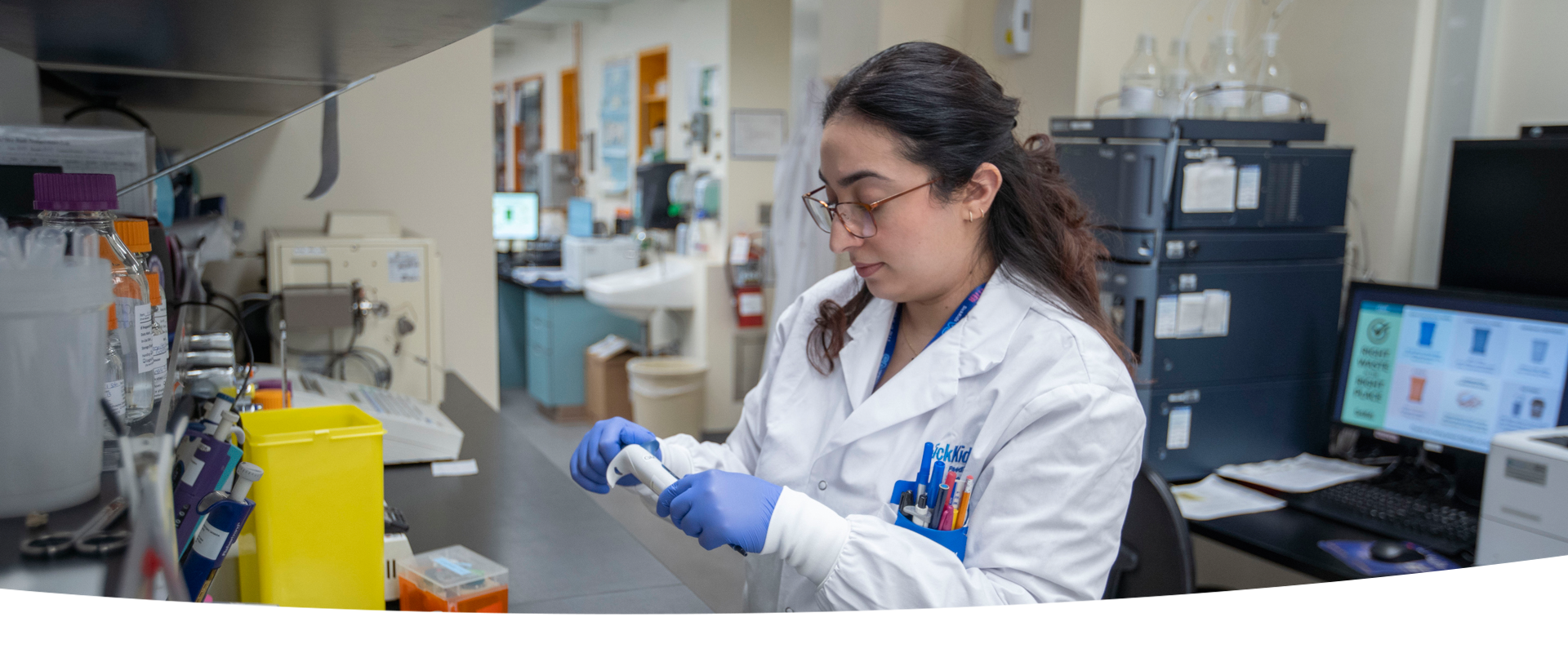
DPLM Research
Each division within the Department of Paediatric Laboratory Medicine (DPLM) houses a number of basic and clinically-oriented research projects supported by numerous grants from national and provincial granting foundations.
Clinical Biochemistry
The Division of Clinical Biochemistry leads CALIPER, a nationwide initiative to improve the diagnosis and care of children through the establishment of a comprehensive database of reference intervals for blood test results in chuldren and adolescents.
Genome Diagnostics
Through its affiliation with the SickKids Research Institute and The Centre for Applied Genomics, the Division of Genome Diagnostics is committed to supporting research and translating new genetic discoveries and technologies into clinical care for patients and their families. Particular research interests by the Division Head, Dr. Somerville include familial enteropathy; health impact of hereditary cardiac disease management and implementation of high-resolution, low-cost diagnostics.
Haematopathology
Basic and collaborative research in the Division of Haematopathology is focused on haematologic disorders of children. Other research interests include cell death and RNA helicases.
Microbiology
Research within the Division of Microbiology largely focuses on (but is not limited to):
- Respiratory viral infections
- Invasive fungal infections
- Cystic fibrosis microbiology
- Clostridium difficile infections in children
- Standards of practice for diagnostic paediatric microbiology
- Molecular microbiology as applied to paediatric infectious disease
Pathology
The Division of Pathology has a strong independent and collaborative research program investigating many different aspects of childhood disease including paediatric sarcomas utilizing diagnostic molecular pathology. Many of our researchers have received international recognition for their work.

